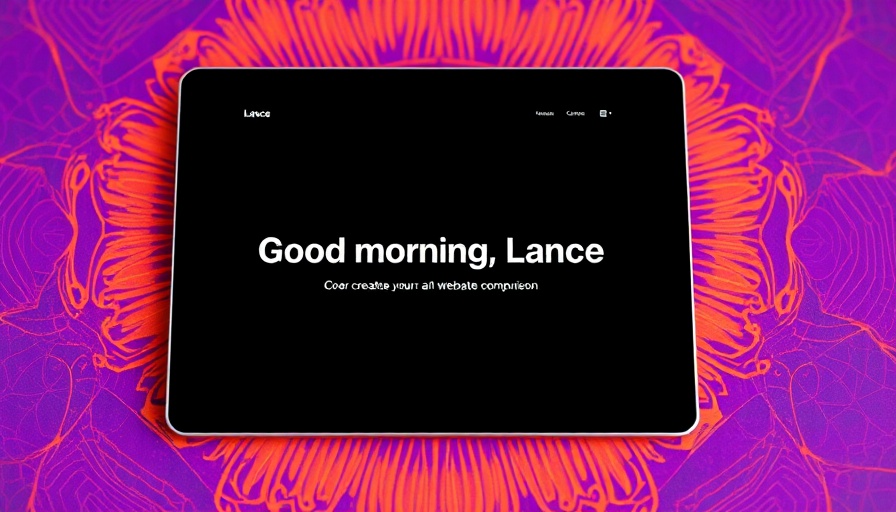
Why Claude 3.7 Sonnet is the Next Big Thing in AI
Anthropic has just raised the stakes in the competitive world of artificial intelligence with the release of Claude 3.7 Sonnet. This latest model represents a significant leap forward in reasoning capabilities, positioning itself as a formidable competitor against established models such as OpenAI's o1 and other leading AI tools. So, what makes Claude 3.7 Sonnet special, and why should technology enthusiasts and developers take notice?
A New Era of AI Reasoning
The standout feature of Claude 3.7 Sonnet is its dual-mode operation: standard mode for quick responses and extended thinking mode for in-depth problem solving. This hybrid reasoning model allows the AI to engage in long-term, step-by-step reasoning similar to how humans approach complex tasks. In a world where AI's efficiency is paramount, this capability is not just innovative; it’s potentially transformative in fields like software development, mathematics, and scientific research.
Exceptional Performance Benchmarks
According to early tests, Claude 3.7 Sonnet has displayed exceptional proficiency across various benchmarking tasks. For instance, it boasts an impressive 70.3% accuracy in coding scenarios on the SWE-bench Verified tests, far outpacing its predecessor, Claude 3.5 Sonnet, as well as other competitors like DeepSeek R1 or even OpenAI's o1. This improvement signifies that Claude 3.7 Sonnet is particularly well-suited for programming tasks, demonstrating stronger understanding and execution of complex instructions.
Moreover, it shows notable results in reasoning, where it achieved over 84% in certain graduate-level reasoning tests. Such milestones illustrate the model's ability to handle real-world challenges effectively, potentially influencing how we utilize AI in various industries—from automation in business to advanced coding solutions.
Access and Subscription Models
However, potential users should note that Claude 3.7 Sonnet's extended thinking mode is behind a paywall, available only to Pro and Team subscribers. While some critics argue this model hampers wider accessibility, others acknowledge that the benefits of advanced reasoning could justify the cost for those who depend heavily on coding and math.
Integrating Claude into the Developer Workflow
For developers, Claude 3.7 Sonnet is accessible through Anthropic’s website, offering a comprehensive suite of features that streamline the coding process. By enabling users to toggle between general conversations and structured reasoning, it allows for greater adaptability in coding tasks. Its enhanced output capacity—over 15 times longer than past models—permits in-depth explorations of programming challenges, making it easier to tackle multifaceted problems.
Alongside its improvements, Claude 3.7 Sonnet integrates seamlessly with platforms like Amazon Bedrock, providing developers with the flexibility to utilize it as a foundation model in various applications.
Future Implications and Trends
As AI continues to embed itself more deeply into our daily workflows, the introduction of models like Claude 3.7 Sonnet raises interesting questions about the future of technology. Its sophisticated reasoning capabilities could pave the way for more personalized and efficient AI interactions, shaping the future of areas like education, healthcare, and customer service.
Getting the most out of Claude 3.7 Sonnet will require companies to rethink how they incorporate AI into their existing systems. Innovative uses of AI in decision-making processes, coding environments, or even customer-facing applications could significantly enhance productivity and creativity.
Conclusion: Is Claude AI Worth Trying?
With its advanced capabilities and impressive benchmarks, Claude 3.7 Sonnet puts itself on the map as a leading choice for AI users, be it for coding assistance or complex reasoning tasks. For technology enthusiasts and developers alike, trying out Claude could yield new insights into how AI can streamline and enhance productivity. As this technology evolves, keeping abreast of its developments and exploring how it fits into your projects could prove invaluable.
For tech insiders and curious developers: explore Claude 3.7 Sonnet today and experience its capabilities firsthand. As AI continues to transform industries, don't miss out on potentially groundbreaking advancements.
 Add Row
Add Row  Add
Add 


Write A Comment